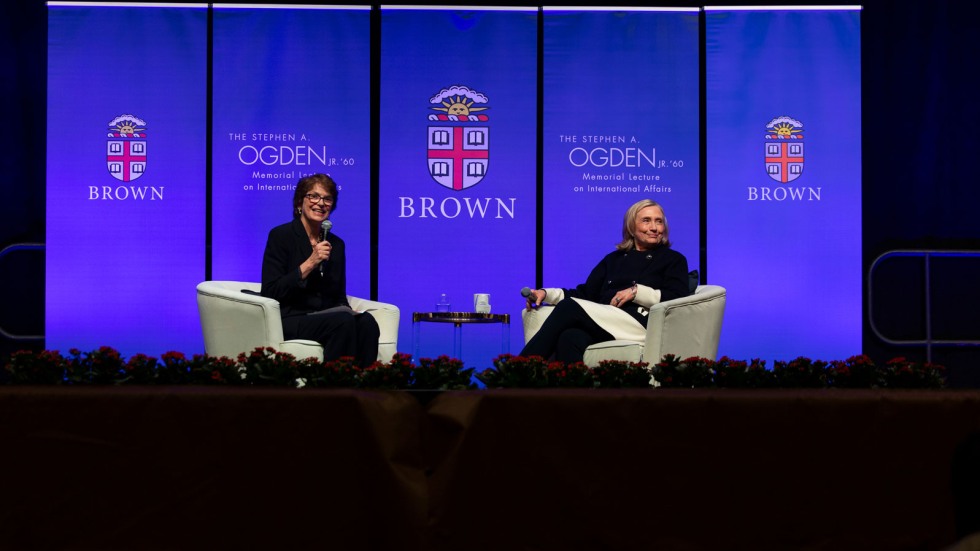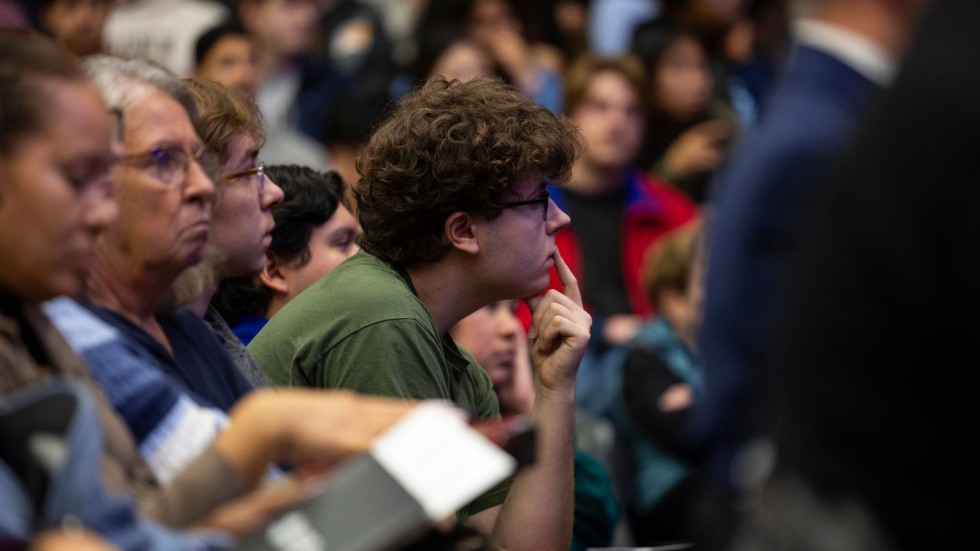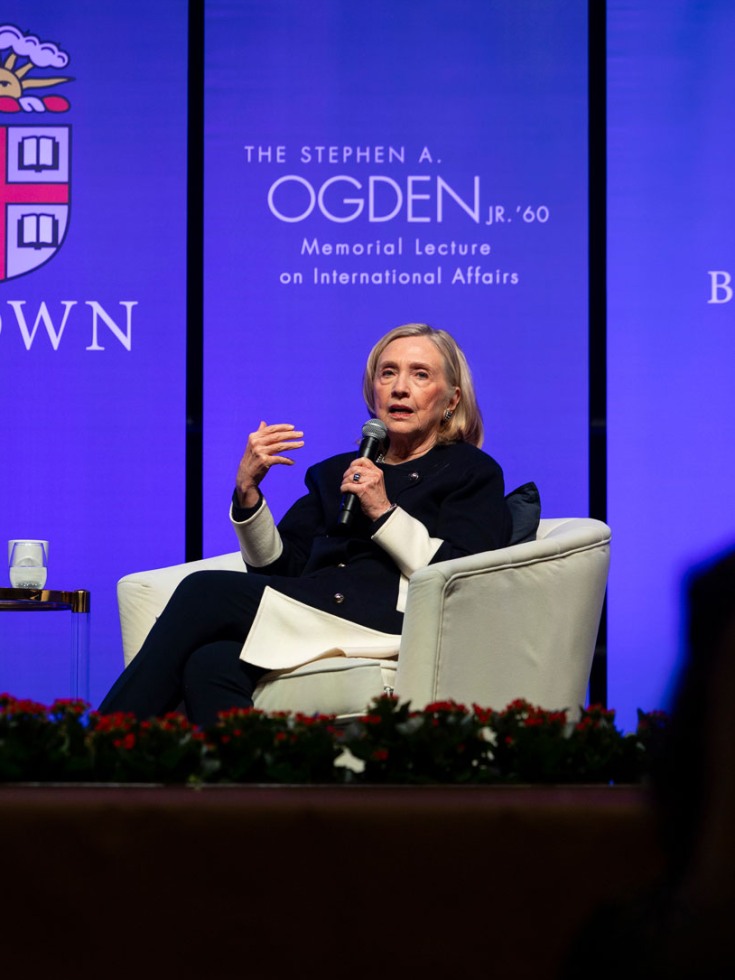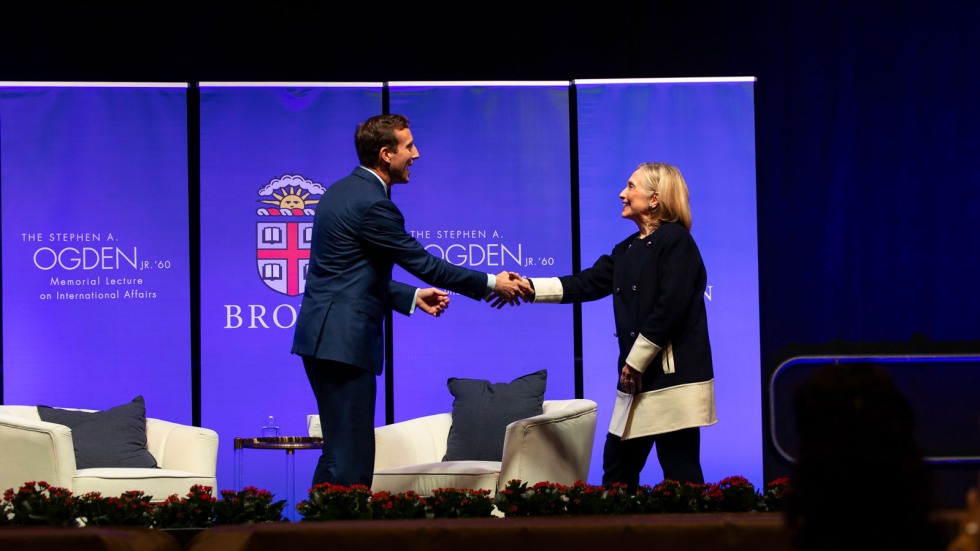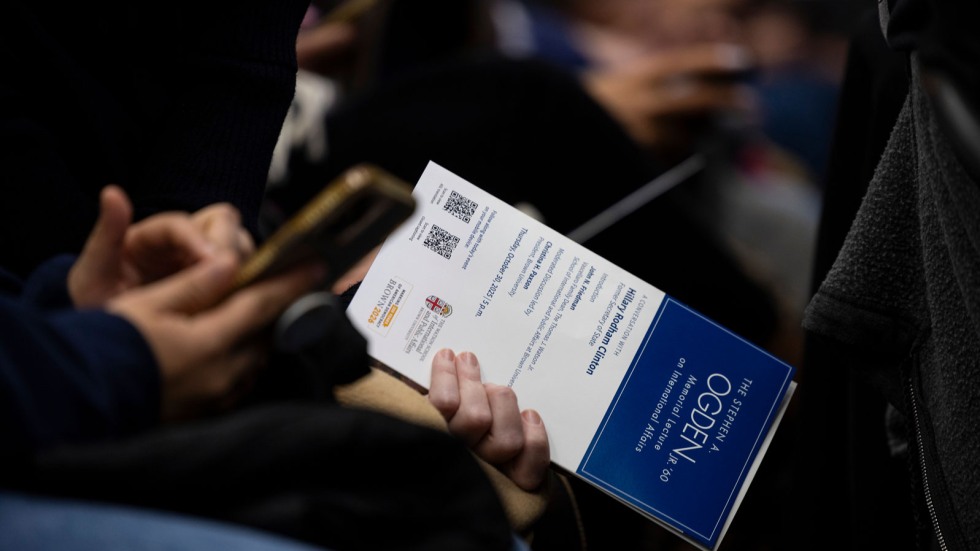While dialogue is critical, she conceded that it doesn’t always work — like with Russian President Vladimir Putin, who she described as impossible, dangerous and misogynistic. Despite strained relations between their two countries, she tried to apply diplomacy to cultivate a relationship, and even traveled to his dacha outside of Moscow where they finally made one small connection that she recounted for the audience at Brown.
“We go into an office, then we go into an inner-inner office that has this enormous map of Russia on the wall, and he starts telling me… ‘I’m soon going up to far, far northern Russia to tag polar bears,’” Clinton said. “‘I said, wow sounds pretty exciting.’ And then he says to me, ‘Would your husband like to come with me?’ I said, ‘I don’t know about Bill, but I’d like to come with you.’”
Clinton also offered insights on present-day foreign policy challenges and global conflicts, including the ceasefire between Israel and Hamas. She praised the current administration for getting the accord in place, but noted that it will require patient, strategic diplomacy to build the kind of alliances needed for longer-term solutions in the Middle East. And she noted the United States’ increasingly strained relations with many of its allies.
“We are stronger in the United States when we are nurturing and preserving alliances, when we have friends, when we work to isolate and diminish adversaries — but if we don’t know what our policies are literally from week to week, that gives a lot of room for maneuver by people who don’t wish us well,” Clinton said. “It also causes others who have historically been our friends and allies to begin… hedging their bets about what’s going to happen next.”
Clinton encouraged women to consider careers in the public arena while understanding that online attacks and sexism adversely impact women, advising them to “take criticism seriously, but not personally.” She warned the audience — which included many Brown students and young alumni — of the unprecedented threats to free and fair elections from calculating, widespread disinformation campaigns, originating both domestically and from abroad.
“This is one of the biggest and most important issues we face, and we are certainly not doing near enough,” Clinton said. “[Disinformation] is the successor to propaganda… a lot of the foreign disinformation is meant to further divide Americans, which it has done a pretty good job of accomplishing.”
